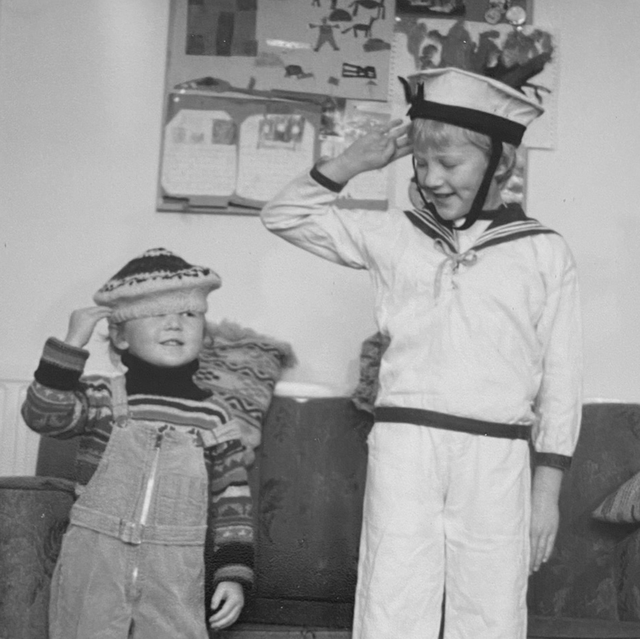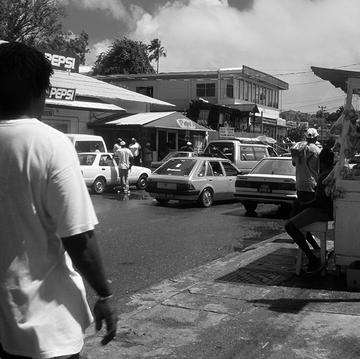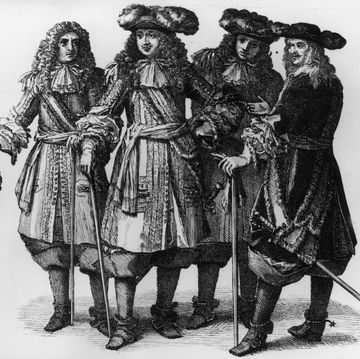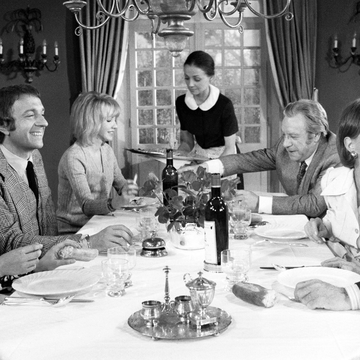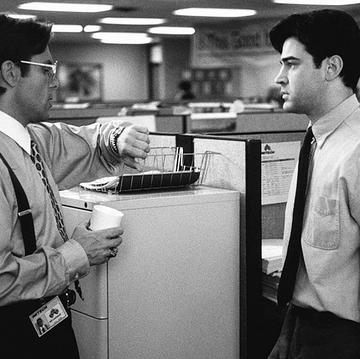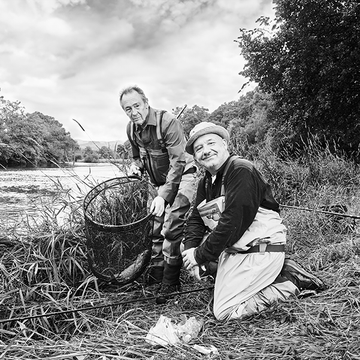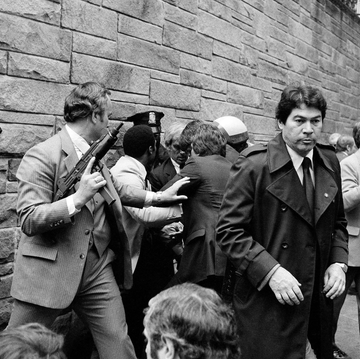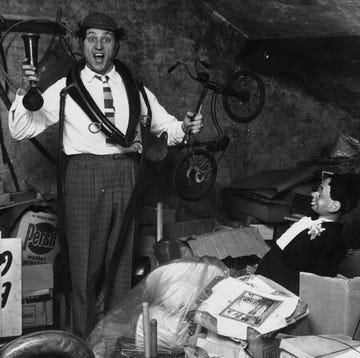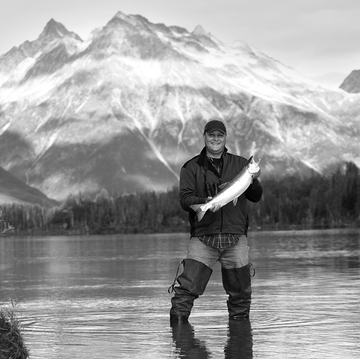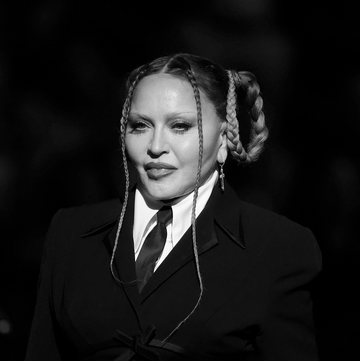My sister and I have built our relationship on telling stories about how much we hated each other as children. We love to recall the time she forced me, at knifepoint, to make her a cucumber sandwich. Or the time I threw a heavy antique iron at her head. Or the time she watched an entire double bill of Home & Away and Neighbours while sitting on my chest, her knees trapping my arms against the floor in the manner of a snow leopard pinning an ibex. As I listened to the advert break between episodes, feeling my hands go numb, I attempted to enter a dissociative state and, in this way, bury the trauma. At least that’s how we tell it now.
The basic dynamic of our childhood rivalry was that she was four years older than me and way better at football. She would later play for Swansea City and Wales but, at this time in 1990, when I was eight and she was 12, her talents earned her something far more significant — the undying loyalty of the boys on our street. While I spent my weekends painting Warhammer figurines with my neighbour Joel (who is now a chemical engineer specialising in the behaviour of bees) she would play football in the road then lead her gang of lads into town “for a chase”. As far as I could tell, this was a game where they would yell insults at strangers until someone finally caved in and pursued them down the Kingsway.
I remember that her boy-gang sometimes struggled with the idea that she was really female. I suspect there must have been some cognitive dissonance at work. It was not possible for them to both believe in football — which they understood in exclusively male terms — and, at the same time, believe in Leah, a girl who could do far more keep-ups than them. It was presumably easier to believe that Leah was a boy — they sometimes called her Lee — than to change their whole world view. I shall leave it to a trained clinician to make the connection between this suppression of her identity and the beatings she passed on to me.
As I approached my teen years, I worked hard to claim a little corner of personality for myself. I learned the bass guitar and got into Radiohead. She attempted to evolve, too, and started drawing on her eyebrows, perming her hair and listening to Tracy Chapman. But our fighting continued without pause — right up until the summer of 1997, when I was 15. We were swimming at the beach and she casually paddled over to me with the intention of holding my head underwater and watching the bubbles rise. Nothing unusual about that. But just as she went to grab me I instinctively took hold of both her wrists. Ordinarily that would not have stopped her but on this day, for the first time, it did. For a long, glorious moment, I held her there, basking in my new power, before I took hold of her head and dunked her, again and again.
From then on, everything changed. Pretty soon we became friends and, eventually, we started telling funny stories about how much we used to fight. We turned the pain into a series of embarrassing but ultimately heart-warming stories about personal transformation. Over time, the anecdotes slowly replaced the original memories until it became hard to remember how any of it had actually felt. But then, out of nowhere, I had a flashback — a genuine, sensory memory returned to me.
I was 35 years old and 4,000 miles away from where we grew up. I had come to Nepal to hike and consider the majesty of the natural world, to be awed by my insignificance in the face of impossible grandeur, but as I stepped down from the biplane onto one of the world’s highest runways — 3,000 metres above sea level —I was instantly transported back to our childhood living room. The pressure on my chest was, I knew, due to the altitude but, at that moment, I could only think one thing: here was the inescapable weight of my sister. Over the coming days, as I walked through the markets, ate banana pancakes in the balconies of traveller cafés,I could hear the Neighbours theme tune running through my head and feel Leah sitting cheerfully on my chest, her eyes locked on the TV screen. It probably did not help that I saw her name echoed everywhere in the signage. Welcome to Leh. Welcome to Leah.
My sister was not aware of this epiphany when, a few years later, she asked me to write a speech for her wedding. She was probably hoping for a wry yet heartfelt poem but, instead, I felt I owed it to my 12-year-old self to go deep, to really travel back there to that house, the grotesque sound of her slurping her cereal each morning. I told the story about the cucumber sandwich. The antique iron. All the classics. But this time, these stories felt vivid and new. I played the Neighbours theme tune over the speakers —to make it more immersive. It was a moment of true catharsis — and yes, a little vengeance — reliving our buried trauma in front of 100 friends and family. Everyone seemed to enjoy it, except, perhaps, my sister.
Afterwards, we hugged and laughed and then I watched her and her wife as they went from table to table, the sound of happiness filling the tent. It was while I was looking at her surrounded by her smiling guests that I had another flashback. I remembered being in my bedroom as a boy, examining the bruises on my arms and vowing that, since I could not defeat Leah physically, I would overcome her through the power of thought. By taking a wide, philosophical perspective, I was able to see that someone as mean and domineering as her would never find love and even if she did, she’d certainly not be able to convert those feelings into a meaningful long-term relationship, and even if she did, there was absolutely no chance — it brought me great comfort to believe — that she would ever marry her soul mate and live a joyful and fulfilled life, surrounded by devoted friends.
I looked out again at the beaming guests.
I saw the way my sister and her wife were gazing at each other.
My 12-year-old self was absolutely livid. My 40-year-old self was welling up. And at that moment, I felt again a pressure on my chest. It might have been her pinning me to a rug in 1994. Or it might have been feelings.
Joe Dunthorne's books include the novel Submarine and the poetry collection O Positive. This piece appears in the Summer issue of Esquire, out now
